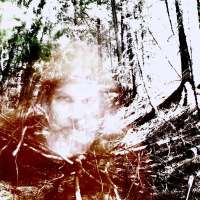Welcome to the Anadrome
Anadromous is an odd sounding little used word. Yet to anyone who has spent time near the rivers of Alaska it is a very useful concept. It is the scientific designation of what Pacific salmon and a few other fish do. They are born in fresh water. They live out in the ocean for anywhere between two and five years, depending on the species, And finally, with a brain about the size of a pea, they inexplicably manage to find their way back home to the same stream they were hatched to breed once and die.
The word “Anadromous” come from the ancient Greek, meaning “running back”, or to run up or against. So the act of swimming up a river, against the current, is an anadromous act. For those familiar with any of the five species of Pacific salmon, the word anadromous also contains another idea. Once salmon leave the salt water to swim up a fresh water river they cease eating and commence dying. And so they swim against strong currents, often blinded by silt, without nutrition, until they finally arrive home; that clear stream or lake where they were born.
The females leave their eggs behind. The males fertilize them. Salmon in their home stream are not a pretty sight. By then they have seriously begun to decompose. Their flesh speckles white. If you picked one out of the stream, very easy for you, a bear or an eagle, they might just start to fall apart in your hands. Sometimes the act of mating and dying transpire within an hour of each other. And so to be anadromous is to fight not only against the current, but to fight with one’s last ounce of strength against death itself until your work is done.
And that’s not the hard part. A salmon can lay over 4,000 eggs. Biologists have estimated that out of those 4,000 only 1 to 4 make it back to the home stream. Meanwhile from the moment they are born everything else is out to get them. From cutthroat trout eating the young fry to fishers with their oceanic gillnets to bears standing patiently along the rivers as squadrons of birds await their turn. And so the anadromous life of a salmon is a race against everything that life can throw and death can deliver to leave something behind. Talk about unseen epics!
Our lives are something like that. We are born into an extremely unpredictable world. Yes we can depend on gravity, sunshine and a fractal reality. Yet how easy it is to be waylaid by the side of the road. Predators abound both, without and within. If we make it out of our teens into adulthood we have a chance to learn, to grow, even reproduce over and over, unlike our salmon. But even then adulthood is a perilous ocean. And then we start to head back to see what our actions and words mean. As Eliot said, “In my end is my beginning”. And as we head back towards home the dangers increase: Age, sickness, bitterness, abandonment, dementia. And finally death comes to pose its questions.
I’m inaugurating this blog at a time when it has become pointless. Our social technology has seemingly emptied out the content of much of our lives. I can be fairly certain that a good share of my Facebook “friends” will never read these little bottled messages. It’s just too time consuming, tedious. Plus we’ve got way too many screens to keep up with now. We are becoming too distracted by our headlines and captions to look for content anymore.
But the again I am writing these words for the few: The ones who are still looking along the shores of the wild ocean for bottles containing notes of more than a few paltry words and abbreviations; more than happy-go-lucky photos and text messages. I am choosing to swim against the current, the very shallow current, for those who still care.
The Anadrome is a road or course that goes back against the current. It is the road less traveled. It is not the road that veers to the Right or the Left. It is not the broad middle road that leads to destruction. It is the narrow road that leads to life through the valley of shadow of death. It is essentially a joyful and a humble road that anyone can travel but few choose.
Finally I am reminded me of something G.K. Chesterton wrote in 1925 in The Everlasting Man: “A dead thing can go with the stream, but only a living thing can go against it.”
Byrne Power
11/8/10
Haines, Alaska








This is a momentous undertaking, Byrne, as the stream of technological intervention is indeed diminishing our capacity to be human.
We are swimming against the tide not only of the tapering time of our existence, but of being alive in that time. We relinquish the pleasures of a human existence, unconsciously, but piecemeal and persistently, and in the process, disintegrate internally way before the body gives way.
What is this nagging sorrow? Surely it’s the deeper part of me, the part that knows the score, knows what is being lost, but can’t seem to turn it around. Mourning the loss of my vigor, my memory; my vestigal senses offering little to resuscitate my interest in the sensual world at my fingertips.
I, too, am overwhelmed by the screens that call out for me to look at them, feel bogged down by the nameless whatever, the ambient busyness…
As a gesture toward the living part of us, thank you for this undertaking.
I am listening. I’m still alive somewhere in here!
November 17, 2010 at 6:58 PM
Eloquent and elegiac, I couldn’t have asked for a better first comment. There is indeed a reality beyond our reconfiguration of it. But it is getting harder to remember. Meanwhile the “nameless whatever” keeps us over-involved, but with what? Yes there is a sorrow behind the virtual mask.
Thanks Genevieve.
Perhaps this little gesture will produce a little fruit.
Byrne
November 18, 2010 at 5:55 PM
I have been thinking recently (and your comments concerning ‘our headlines and captions’ reminded me)of a trend which seems to be happening in literacy. A trend which, in itself, may, in a manner, be anadromic.
By our best calculations most ancient societies from which ours can claim an inheritance had literacy levels of 3 to 5%, with the most generous estimations upwards of 10 to 15. It strikes me that the turn towards headlines establishes a new opposite to literacy, that of aliteracy. Those who do not read are not entirely cut off from some of the finer details of news and thought but rather rely on oral transmission for their news. As a friend expressed it this morning, details of a currently unfolding story were ‘in the air’.
If literacy is a fundament of a working democracy (a case often made), the turn to aliteracy may be an early move to reject modern democracy.
Be that good or ill, it does offer a different take on the problem of ‘headline societies’. Those who are truly literate may need to reconsider our role not as a dying breed, but a reborn artisan-scribe class.
November 19, 2010 at 2:55 AM
Otheous I would have expected nothing less than to have you take us back up another stream of thought. Intriguing.
I suppose there is a big difference between the non-literate or preliterate culture and the post-literate or aliterate. Yes the tribal drumbeats have returned, although with less connection to the physical world than ever before.
And I think you have a point. This artisan-scribe class that is emerging is well worth considering at length in the future. Unlike the scribes, monks and intelligentsia of the past it is possible to drift from this world into what Genevieve above called the “nameless whatever”. How many formerly quite literate folk are now drifting through the maw of electronica, caught in the shifting winds of the headlines and captions?
Thanks indeed for the thoughts. I look forward to many more.
Byrne
November 19, 2010 at 11:22 AM